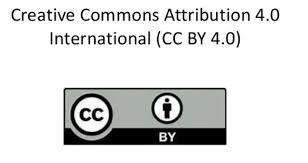Food Security among Smallholder Farming Households in Osun State, Nigeria: Factors and Coping Strategies
DOI:
https://doi.org/10.47440/JAFE.2022.3110Keywords:
Food security, Small-holder, Household, Factors, Coping strategiesAbstract
Climate change has negative impact on the global environment resulting in devastating effects such as pest and diseases, infertility of soil, and change in rainfall pattern, which affects food security. The study therefore examined food security among smallholder farming households, factors and coping strategies in Ife North Local Government Area, Osun State. A Three-stage sampling procedure was used to randomly select one hundred and forty-four (144) respondents. One hundred and thirty were retrieved (130) and were analyzed. Descriptive statistical and inferential statistics which include; frequency, percentages and ordinal logistic regression were used to analyze the data. Results showed the mean age was 46 years and income was ₦405,000 per year. Majority (78.5%) of the farmers were male, 86.9% sourced their information through community members, borrowing of funds (mean=3.1+0.79), consumption of less preferred food (mean=3.0+0.75) and working for other farmers for purchasing power (mean=3.0+0.83) were the leading coping strategies. Major factors perceived to influence coping strategies were Rain (mean=4.7+0.44), pest and diseases (mean=4.3+0.48) and fund (mean=4.1+0.95). Pest and disease (χ2 =22.532; p=0.000), soil fertility (χ2 =39.828, p=0.00) and household size (χ2 =5.000; p=0.025) were significantly related to coping strategies for food security of farming household. This study concluded that rainfall pattern, pest and diseases and funds were the major determinants of coping strategies for food security among the smallholder farming households. It is therefore recommended that access to farm inputs, finance and insurance for smallholder farmers must be improved and the government should provide agricultural loans to the rural farmers.to encourage their involvement.






 Publisher:
Publisher: 